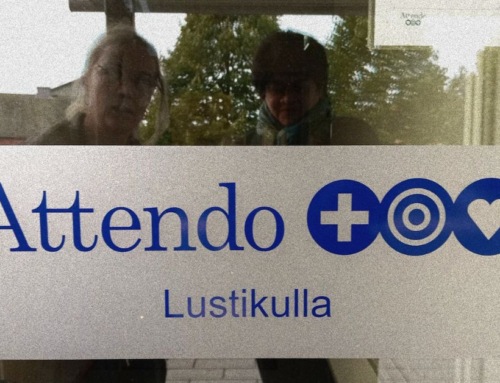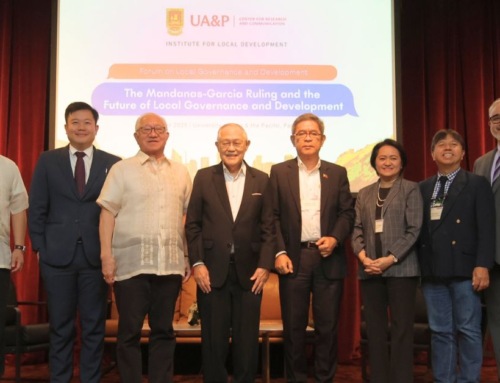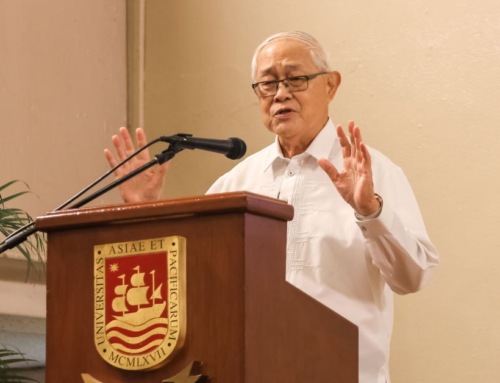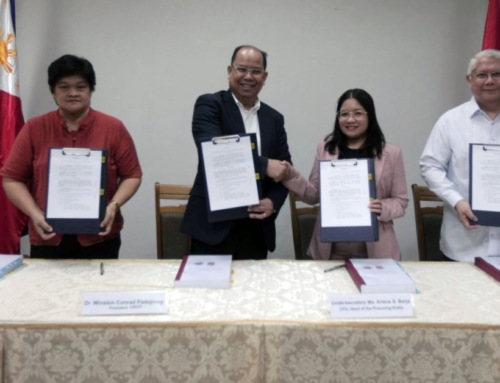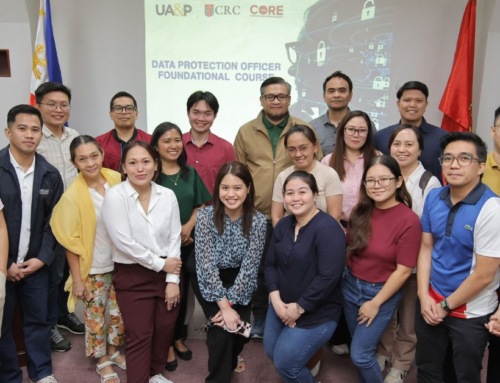Attracting more foreign long-stay tourists to the Philippines is a lucrative industry. However, there is a need to stop, listen, and truly understand the concerns of both Filipino and foreign retirees: How do they want to spend their “second youth”? What dreams do they want to fulfill? Helping to broaden the retirement industry’s perspective, from an emphasis on profit generation to better understanding retirees as persons, was the main objective of “Life Beyond Retirement: A Round Table Discussion on Retirement in the Philippines”.
Organized by the Center for Research and Communication on March 25, 2015, this round table discussion was part of the research and communication activities of the BPI Professorial Chair for Migration & Overseas Filipino Work, whose Professorial Chair Holder is Dr. Veronica E. Ramirez. Some of the insights that emerged from the presentations were counterintuitive to the usual approach of the retirement industry. Mr. Bansan Choa of Philippine Retirement Inc. and i-Remit recounted his organizations’ shift from selling units in segregated retirement villages, to encouraging OFWs to convert their unoccupied houses into rental “group homes”: “For retirees, buying property is something that is no longer affordable now, considering that the average retirement pay that they get is USD 1,200 to 1,800 a month.”
Dr. Klaus Zeller emphasized the need to develop affordable resorts and amenities for OFW retirees, which would in turn attract foreign retirees. He also gave advice on developing the foreign retiree market: “It is tempting to think that there are so many alien oldies and that they have much savings. This market does not yet exist. Some of my colleagues live in Spain, France, the U.S.A.—countries which they have gotten to know better. What ‘alien’ knows the Philippines? If you want to develop that market, start with tourism.”
Dr. Bernardo M. Villegas highlighted how climate change in the form of harsh winters could increase the trend of retirees from temperate countries staying in the tropics during the winter months. Discussing the experiences of seafarer retirees, Captain Antonio Dael of the NYK-TDG Maritime Academy described how its curriculum covers retirement finance, health, and wellness topics as early as in the undergraduate level, complemented by their postgraduate courses preparing retirees for land-based occupations such as ship superintendency, HSEQ auditing, ship casualty investigation, and port captaining.
Dr. Asuncion Anden of the National Pharmaceutical Foundation, Inc., noted the need for access to and availability of health services for retirees from various socioeconomic backgrounds. Mr. Ericson Maquinto of TBS Industrial Services Philippines, who established a care facility for his parents and his mentor, included an emotional video clip in his presentation on caring for aging parents. Finally, Dr. Veredigno Atienza, President of the Philippine Retirement Authority, pushed for retiree residences in “multi-generational” settings, and for a Philippine culture, climate, and infrastructure favorable for both Filipino and foreign retirees.
Ms. Athena Balleza of Bank of the Philippine Islands, as well as representatives from BDO Unibank, Inc., the Board of Investments, GlaxoSmithKline Pharmaceuticals, Great Life Philippines Retirement Corporation, Kabalikat ng Migranteng Pilipino, Inc., Philippine Electronic and Telecommunications Federation, Philippine Export-Import Credit Agency (PHILEXIM), Raju Mandhyan Communications and Leadership Training, Southwest Professional Advantage Corp., and alumni of the UA&P Strategic Business Economics Program (SBEP) also participated in the round table discussion.
The retirement industry can increase its potential to create livelihoods and help reduce poverty by serving the needs of retirees as persons in multi-generational communities. “Philippine culture does not separate old people from the family. Retirees in general still live with their families and are still taken care of by their children and grandchildren. That is something that we should try to preserve,” affirmed Dr. Bernardo Villegas.
ROGRAMME Introduction Veronica E. Ramirez, Ph.D Director for Operations, CRC-UA&P Holder, BPI Professorial Chair for Migration & Overseas Filipino Work
Welcome Remarks Bernardo M. Villegas, Ph.D., Director for Research, CRC-UA&P
EXPERIENCES OF RETIREES Retirees from Maritime Industry Capt. Antonio R. Dael, Dean, Center for Shipboard Training and Continuing Education, NYK-TDG Maritime Academy
In-Migration of Foreigners to the Philippines Dr. Klaus Zeller, Former German Ambassador to the Philippines Author, Crossing Many Borders to Reach Home
Common Health Concerns of Retirees Asuncion M. Anden, M.D., MPH, CESOII, Director IV (Ret.), Department of Health Consultant, National Pharmaceutical Foundation, Inc.
Service Above Self: Providing Services to Old People Mr. Ericson B. Maquinto, President, TBS Industrial Services, Inc. (Phils.)
RESPONSE FROM INDUSTRY AND GOVERNMENT Receiving “In-Migrant Retirees” from Cold Countries Mr. Bansan C. Choa, President, Philippine Retirement Incorporated Chairman and CEO, i-Remit, Inc.
Addressing the Needs of Local Retirees Veredigno P. Atienza, D.B.A., General Manager, Philippine Retirement Authority
Open Forum and Discussion Closing Remarks Bernardo M. Villegas, Ph.D.
Veronica E. Ramirez, Ph.D. Facilitator

